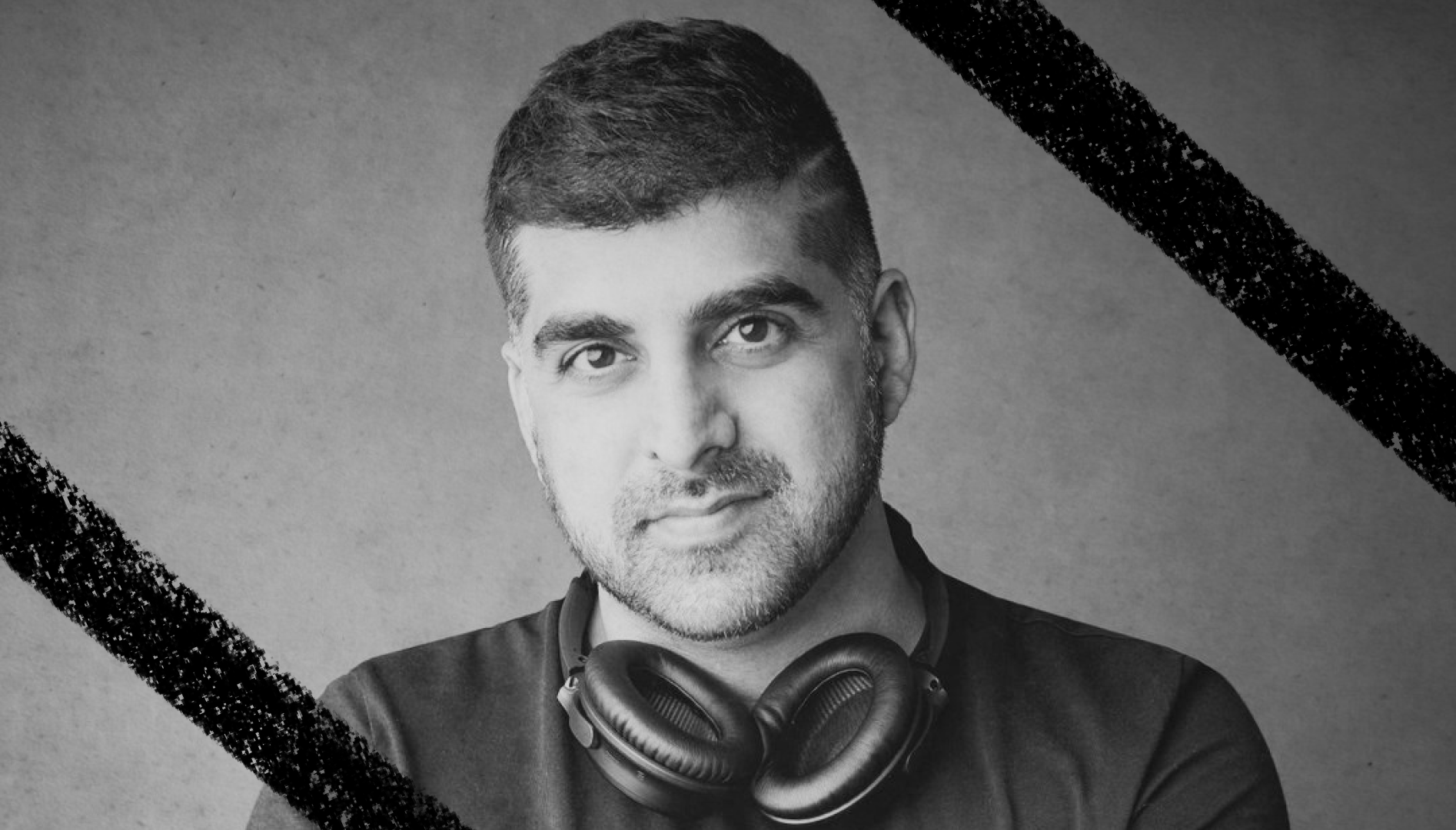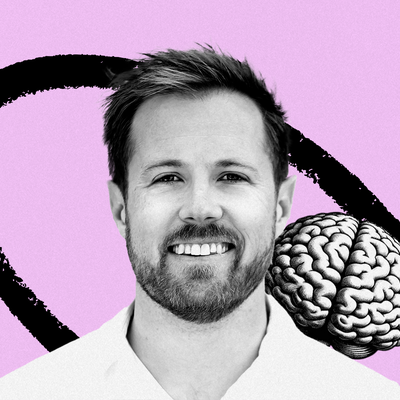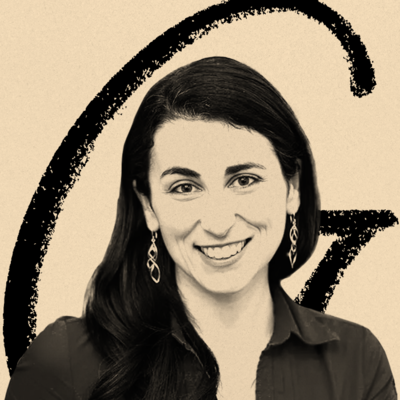
Who Shaan Puri is Becoming
The co-host of the My First Million Podcast reveals his tools for growing into a better version of himself
February 24, 2021
Today’s Action Item is 1226 words, or 10 minutes of actionable reading.
There’s an idea out there that says: in order to accomplish great things you have to plan them. You need to hold firm to specific goals, keep yourself accountable, break them down into smaller steps, and track your progress along the way.
But Shaan Puri doesn’t believe in that. He’s not trying to achieve and accomplish. Instead he focuses on who he is becoming.
He’s a serial founder who sold his last company to Twitch, he angel invests in about 25 companies a year, and he co-hosts the My First Million podcast which has over 300,000 monthly listeners.
He doesn’t do all of this with a long list of goals, or a Notion setup that tracks his progress to achieving them, or a precisely cleaned todo list. In fact, he thinks goals are overrated and doesn’t use a todo list at all. He’s not trying to scrape productivity out of each minute of each day—he’s not calculusing his way to success. Instead, he’s focused on cultivating certain values, and characteristics. He’s trying to make himself into a certain kind of person. If he does that, he figures the score will take care of itself.
So he likes to ponder a question that he printed on a poster above his desk: “Who am I becoming?”
Ben Franklin did something similar. He picked 13 virtues that he wanted to be a part of his character, and he systematically tried to embody them by working on one at a time. Shaan’s got Ben beat—he picked a Power Four of his own that he calls his “Kings”.
He calls them Kings because it can be overwhelming to try to be a great dad, a great CEO, a great friend, etc., all at the same time. “It almost feels like you need to be four different people,” he said. Instead, he thinks of it like a deck of cards. Each king comes in four suits—and each core area of his life corresponds to a different one.
“These are the four things that I care about right now in my life. I don't know how long this chapter lasts, maybe it's six months, maybe it's six years,” he told me.
His Kings help him keep top of mind the idea that life isn’t about past accolades or some fixed self-identity. For him, life is about growing, and changing as you unfold into the future. “That's what ultimately is fulfilling and interesting in your life is changing yourself for the better,” he told me.
So what are Shaan’s Kings? And how does he cultivate and embody them in his life?
Let’s dive in!
👑👑👑👑 Shaan’s Four Kings
He keeps his Kings posted at his desk so they’re always present, and also spends a bit more time writing out what they mean to him in a Google doc. These are his four:
Generous like Ramone
Shaan is determined to be a giver. He noticed in himself that he loves to receive things, but that he spent very little energy giving. He was inspired by a friend named Ramone to change that.
“Anytime I saw Ramone, he was giving me something,” Shaan said. “He’d be like, ‘Oh, you started a podcast?’, and then he bought me two books on podcasting and gave them to me.”
Shaan is taking Ramon’s example, and trying to find as many opportunities as he can in to give in his daily life.
A Teacher
After he sold his company Shaan had a choice: did he want to start another one just to add another zero this bank account? Or did he want to do something more meaningful? He decided to do pursue the second path, and for him that meant becoming a teacher. It’s the thing that he enjoys doing most.
That’s why he does his podcast, and that’s why he agreed to be in this newsletter. He wants people to help people learn.
Habitually Fit
For Shaan the goal is not to get a six pack. And it’s also not to try to force himself to go on a restrictive diet, or a crazy exercise regimen that he hates.
Instead, the idea is to experiment with different ways to be fit and healthy until he finds what works for him easily. For example, instead of trying to force himself to eat salads, he’ll spend time trying as many different salad recipes as possible until he finds one that he enjoys so much that it doesn’t take any effort to get himself to eat it.
He’s building new defaults that make being fit enjoyable for him.
Mastering Meaning
Shaan wants to take control of how he interprets what happens to him in his life.“I just don't believe that there is an objectively bad thing,” Shaan told me. “And so I am training my brain this year, so that that becomes the default.”
He wants to be someone whose baseline state is happiness, and who responds to events in a steadily positive manner. Reframing, or choosing the way he assigns meaning to what happens in his life, is the tool he’s using to accomplish that, one that science supports.
In fact, one of the most successful therapy modalities of the last 50 years—cognitive behavorial therapy—uses reframing successfully to help people relate differently to their cognitions, and change their outlook for the better.
One example of successful reframing he shared with me was a relatable dilemma. He and his wife had spent a great deal of time planning a family Thanksgiving when his sister called to tell him her family couldn’t attend because of Covid concerns. He told me that while he recognized that irritation was one reaction he could have, he chose to feel gratitude instead—his mom, who is older, lives with his sister and the cancellation was a way of caring for her. He also used it as a moment to re-evaluate his own level of precautions.
🤓 Dan’s Take
The thing I like about Shaan’s Kings is that they aren’t goals. Goals can work short term, but once you achieve a goal there’s nothing left to do. By contrast, Shaan’s Kings are more like directions. You can’t “achieve” being generous, but you can always choose to be generous in any given moment.
Measuring your behavior in this way gives you an inexhaustible supply of meaning and motivation that isn’t materialistic or outcome-centered, and is always available no matter what happened in the past. It’s a great way to set up your life.
In fact, Shaan isn’t the only Superorganizer to run his life this way. Henrik Werdelin, the founder of BarkBox has a similar method that he calls 8 + 1.
🕚 90 seconds of suffering
If reframing difficult experiences feels, well, difficult, Shaan is sympathetic. “I understand that this is annoying, and hard to do right away,” he told me. Shaan knows it’s really hard to be a monk and never feel annoyed, upset, irritated, frustrated or stressed. But he doesn’t let it throw off his day.
He gives himself a tiny “suffering budget” where he gives himself 90 seconds to feel all of the feels. When something upsetting happens he sets a timer and lets it rip.“What you find is that it’s been 40 seconds and you're like, ‘Okay, I can't really force myself to feel it anymore’ and you don't even make it the full 90,” he told me.
📅 OBT
Shaan doesn’t use a to-do list to structure his days, because he finds them satisfying to write, but then anxiety-inducing to follow. Instead he poses the OBT or One Big Thing question: What’s the one thing that I could accomplish today that would make it a success? He says that grind culture tends to value getting a lot of items checked off our lists, rather than focusing on high impact work. Giving that more valuable work proper weight, he argues actually adds up to more forward movement, a kind of tortoise and hare scenario.
Figuring out your OBT is a bit of a learning curve, he admits, saying that his first three ideas for the day are usually a reaction to something in his email or Slack. So he spends five minutes brainstorming and then adds his OBT to this Chrome extension, which then reminds him what it is every time he opens a new tab.
📝 Impact and urgency matrix
To organize all the small tasks that would normally go on a to-do list, Shaan uses what is sometimes called an Eisenhower Matrix, where impact is the y axis, urgency is the x. One of his subscribers built an online tool called the Baller Todo list.
📣 Key Takeaway: The corner store
Shaan told me when he does a project he really, really wants it to work. We all do. When he really wants a particular outcome, it can be easy to feel stressed or anxious that it won’t happen. Then his personal trainer gave him a new mental model: The corner store. It works like this.
There’s a corner store a 20-minute walk from your house that sells delicious ice cream treats, and you’re walking to get one. Are you worried that you won’t get there? Do you feel competitive with someone who happens to be closer to the store? Do you feel guilty that you’re not there yet?
No. You feel at ease because you know how long it takes to get there, and that if you keep walking you’ll arrive, and you’ll enjoy the ice cream when you do.
“What if you treated all your projects with the same level of certainty and effortlessness as a walk to the corner store to get that ice cream you really want?” Shaan said. “Ever since he told me that, I started to look at my projects very differently. I know I’ve got to take a bunch of steps and that's okay. I actually enjoy walking.”
👉 Benefit for Members: 1 Month Free of Superhuman
Do you want to try Superhuman? I use it and love it every day to manage my inbox. Members now have access to it for 1 month free. You can sign up here: http://superhuman.com/superorganizers.
This article was co-written by Dan Shipper and Annaliese Griffin
Find Out What
Comes Next in Tech.
Start your free trial.
New ideas to help you build the future—in your inbox, every day. Trusted by over 75,000 readers.
SubscribeAlready have an account? Sign in
What's included?
-
Unlimited access to our daily essays by Dan Shipper, Evan Armstrong, and a roster of the best tech writers on the internet
-
Full access to an archive of hundreds of in-depth articles
-
-
Priority access and subscriber-only discounts to courses, events, and more
-
Ad-free experience
-
Access to our Discord community





Comments
Don't have an account? Sign up!